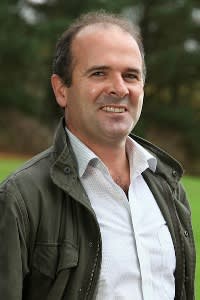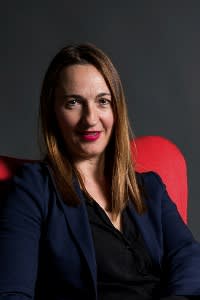Right up until not long ago, the initial-12 months business and economics syllabus that Carlos Cortinhas had to instruct could, by his individual admission, “be a drag”. Undergraduates labored through textbooks and lectures detailing indifference curves and industry equilibrium, memorising the primary theories and types of economics to achieve the following phase of their degrees.
Now, the class taught by the affiliate professor of economics at Exeter college in the Uk is composed additional of debate and discussion than rote understanding, and learners speak about climate modify prior to they even study about supply and demand.
This novel tactic works by using Core (Curriculum Open-obtain Methods in Economics) — a contemporary tactic to training that grounds economics in the serious planet.
Started out a 10 years in the past and now made use of in 310 universities in sixty eight countries, it flips conventional economics training on its head, commencing with thorny world-wide troubles that issue young people and exploring how a various variety of theories and types can aid fix them.
“It’s wholly transformed how we instruct,” Cortinhas states. “The learners develop into additional engaged, interactive. It’s a serious pleasure.”
Assorted, sensible and available, Core exemplifies a new form of training — just one that is in particular at property in business departments.
As business and administration schooling has grown, so has economics training in business schools. This has made new possibilities for investigate collaboration, sensible operate and training for new audiences — all of which has sown the seeds of contemporary pondering about a typically conservative and theoretical topic.
“There’s a variance to how you instruct economics in a business university,” states Michael Kitson, senior lecturer in global macroeconomics at the University of Cambridge Decide Company School in the Uk. “It’s considerably additional open up to pluralistic strategies of pondering it is only just one component of a wide variety of disciplines.”
Kitson appears to be back fondly on years where Marxist, Keynesian and neoclassical economists labored facet by facet, but thinks classic economics departments have misplaced some of their range.
Now he feels additional at property in the business university, where lecturers from a wide variety of disciplines operate on sensible difficulties. “That pluralism in economics departments has gone,” he states. “Where that pluralism now exists is in business schools.”
A British Academy paper on business research, introduced very last month, discovered that business and administration is interdisciplinary just about higher than all else — encompassing topics from finance and economics to sociology and geography, and a significant and various student human body.
In 2019-twenty, just one-sixth of undergraduates and just one-fifth of postgraduates in the Uk were being enrolled on a business and administration course, of whom 39 for every cent were being global learners and about twenty for every cent from a black, Asian or minority ethnic history.
Lisa Magnani, professor of economics at Macquarie University in Australia, states the broad attraction of business research has compelled economics lecturers to consider additional creatively.
“A dimension of economics is a lack of range — the capacity to scare ladies away, or to draw learners from sure varieties of socio-economic backgrounds,” she states. “Both at undergraduate amount, and at the MBA amount, we’ve turned economics training upside down . . . the thought is used and engaged economics.”
Broader audiences and serious-planet troubles necessarily mean economics training have to recognise a broader variety of types and techniques, course leaders say. Nowadays, both equally Era Z undergraduates and MBA learners are additional possible to be progressive and socially aware, if not constantly economically leftwing.
“If we went back fifteen years in the past, MBA learners were being largely hunting for the expertise and schooling that would make it possible for them to progress in their professions,” Kitson factors out. “That’s transformed. Increasingly, they’re seeking to recognize the larger picture in terms of world-wide difficulties — inequality, climate modify, racism. These are considerably additional popular than striving to maximise [their] income.”
Progressive sights may well be increasingly in demand in business departments, but they do not constantly have an simple experience.
In the Uk, the University of Leicester faces an global boycott above cuts that meant scientists specialising in critical and leftwing techniques to business and economics were being focused for redundancy.
The college states it is inserting better emphasis on large facts, analytics and synthetic intelligence. It aims to “focus on investigate on contemporary challenges where there is crystal clear demand from customers of investigate and from funders”, to equip graduates with the “relevant expertise to drive constructive influence all-around the world”.
Having said that, David Harvie, a political economist and just one of people struggling with redundancy, states cuts to critical thinkers have destroyed the risk of a genuinely various and demanding business curriculum at Leicester.
“I consider it will die out,” he states. “I sense like some of it is primarily based on the thought that a person who goes to Leicester is not able to examine humanities. But glimpse at people now rediscovering Keynes, Marx — people do want history.”
Other educators argue that new types of economics training do not go far plenty of. At Rethinking Economics, a student and tutorial-led movement to reshape the topic, co-director of functions Tree Watson states while the serious-planet aspect of Core opens up new perspectives, genuinely pluralist theory is lacking. “It’s nonetheless neoclassical economics at the conclude of the working day,” she states.
But Wendy Carlin, professor of economics at University University London and a task director at Core, argues that the new strategies of training economics are getting embraced not just in business schools but wherever the topic is taught. With outstanding outcomes, much too. A 2020 examine discovered the marks of learners who took Core averaged seventeen for every cent higher than people who did not observe the syllabus, and not only economics learners felt a strengthen but also people studying finance and administration topics.
Carlin describes the Core tactic as starting up not from the assumptions of best data and types, as in classic economics training, but in the way the serious planet performs, with all its imperfections.
That, she hopes, will not only make economics additional available for learners, but will also aid develop new theories and frameworks for the difficulties of tomorrow.
“These different ideas of money and all the measurements of [gross domestic products] came out of the Fantastic Despair — we face different troubles now,” she states. “There’s an hunger for actually revisiting how we view the economy . . . We’ve proven it is achievable, but there’s a lot additional to be carried out — and have to be for universities to maintain their relevance.”








More Stories
What Type of Branding Works For You?
Branding a Winery and Its Wine Is Expensive, Necessary and Benefits the Consumer No Matter the Size
Steady Eddie Personalities in the Workplace